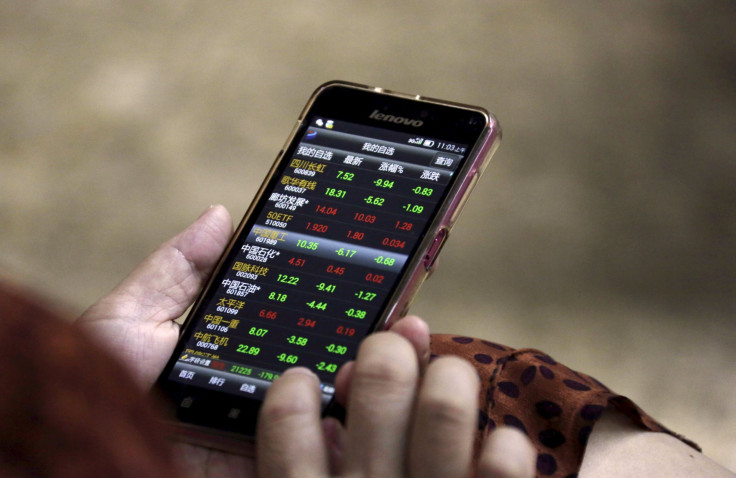Asia Stocks Hit 1-Year High As Soft US Data Quells Fed Hike Talk

The dollar tumbled and Asian stocks rose to one-year highs on Wednesday after surprisingly weak U.S. services sector activity dashed already slim chances of an interest rate hike by the Federal Reserve as early as this month.
European shares were expected to tick up, with spread-betters looking to gains of 0.2 percent in Britain's FTSE and 0.1 percent rise in Germany's DAX.
MSCI's broadest index of Asia-Pacific shares outside Japan rose 0.4 percent, extending gains of 2.7 percent over the last two days, to claim a level last seen in July last year.
"When people think there's no immediate rate hike from the Fed, then Asia and emerging markets are the place to go to, as investors seek yields," said Toru Nishihama, senior economist at Dai-ichi Life Research.
Japan's Nikkei slid 0.4 percent, however, as the yen gained sharply versus the dollar, putting more pressure on exporters in the world's third-largest economy.
The U.S. Institute for Supply Management's index of non-manufacturing activity fell to 51.4, its lowest level since February 2010, from 55.5 the month before and well shy of the 55 estimate.
Given that strength in the service sector has been making up for softness in manufacturing in the past year or so, the data was a blow to the case for the Fed to raise interest rates as soon as this month.
"The Fed now looks certain to keep rates on hold this month," said Shuji Shirota, head of macro economics strategy group at HSBC in Tokyo.
Comments from several Fed officials in recent weeks had boosted bets on a rate hike in coming months, but investors have had to scale back their expectations since Friday's weaker-than-expected U.S. payrolls report.
San Francisco Fed president John Williams, speaking after the ISM data, said he expects the Fed will raise rates gradually over the next few years.
"Recent hawkish comments from Fed officials were probably intended to warn markets against being too complacent about the chance of a rate hike, rather than to make markets fully price in a rate hike," Shirota said.
U.S. bond yields fell, with policy-sensitive two-year notes yield falling to 0.730 percent, its lowest since Aug. 19, down from 0.853 percent marked on Aug. 29.
U.S. interest rate futures price gained to indicate only about a 15 percent chance of a rate hike this month and just over 50 percent by December, compared to above 20 and 60 percent, respectively, before the data.
Declining U.S. yields undermined the dollar against other currencies and precious metals.The dollar, which had slumped 1.38 percent on the yen on Tuesday, shed another 0.6 percent to 101.36 yen.
The yen gained additional support from a media report that the Bank of Japan's board is struggling to agree on a common front in its planned policy review.
The euro maintained Tuesday's 0.96 percent rise against the dollar, the biggest daily gain in three months on Tuesday and last stood at $1.1260.
The common currency showed little immediate reaction to a surprisingly weak reading in German industrial output, which fell 1.5 percent in July, compared to forecast of 0.2 percent rise.
A resurgent British pound rose to near eight-week high of $1.3445 on Tuesday and held firm at $1.3420.
Gold rallied to $1,352.4 per ounce to near three-week highs on Tuesday, and last stood at $1,350.0.
The Australian dollar was little changed at $0.7683 after GDP data largely met expectations, with Australia's annual growth clocking its fastest pace in four years last quarter, clinching a remarkable run of 25 years without recession.
Oil prices kept some distance from three-week lows touched last week, maintaining some of the gains made after Saudi Arabia and Russia agreed on Monday to cooperate in world oil markets, saying they will not act immediately but could limit output in the future.
Brent crude futures stood at $47.47 per barrel, up 0.5 percent on the day and above its low last week of $45.32.
© Copyright Thomson Reuters 2024. All rights reserved.





















